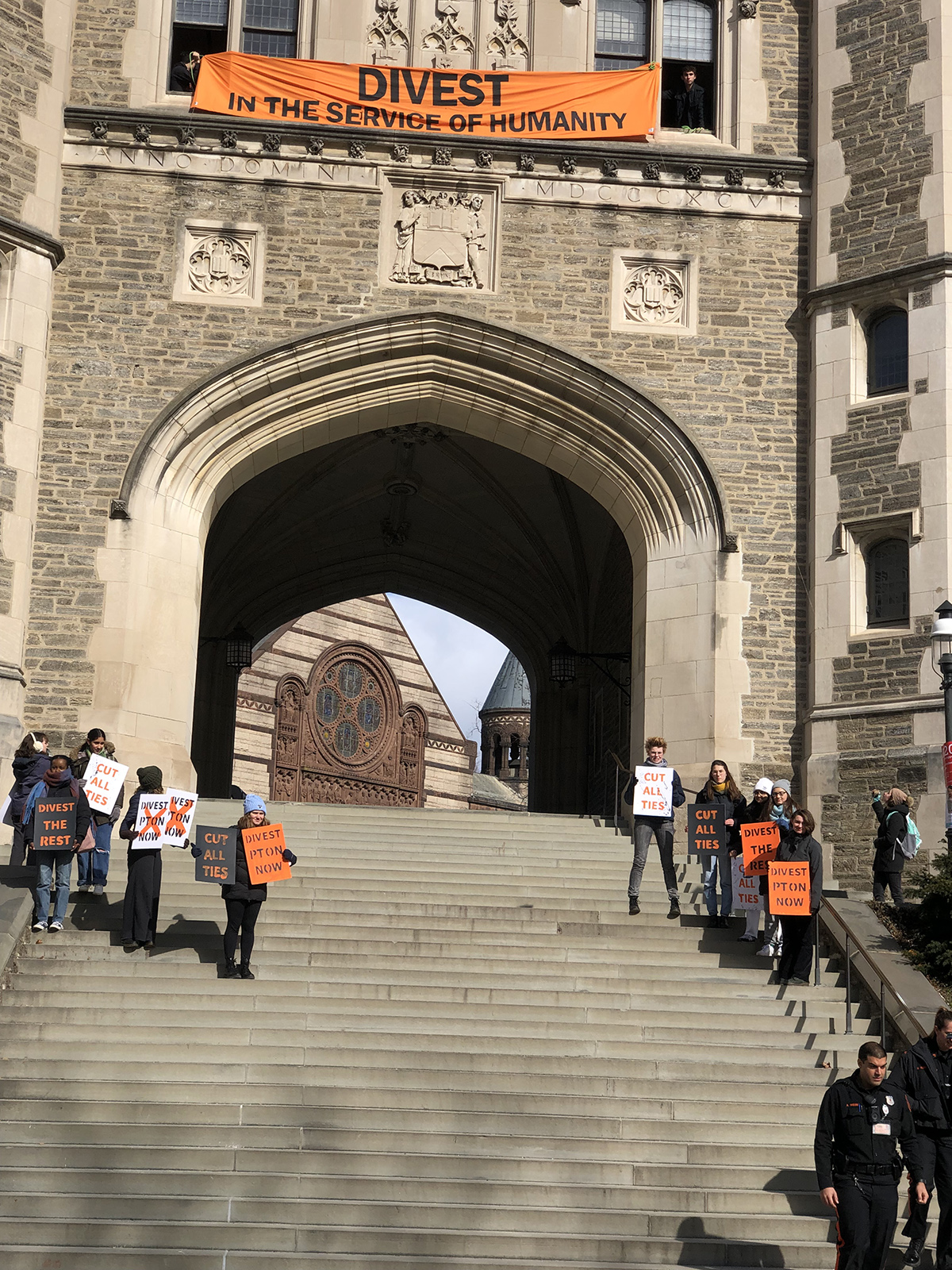Student Activists Cover Blair Arch with Climate Message
The words “DIVEST/IN THE SERVICE OF HUMANITY” stretched across the arch until a University official told organizers they could not hang signs off a building.
“We knew it was a possibility and we went for it anyway,” Eleanor Clemans-Cope ’26 told PAW. “This is an extremely important issue and what we were doing was not causing harm. In fact, it was demonstrating our right to protest and free speech.”
Divest Princeton, founded in October 2019, has been calling on the University to shed its endowment of all investments in fossil-fuel companies and end financial relationships, such as research funding, with those companies.
In September, the University announced that the Board of Trustees had voted to divest from all publicly traded fossil-fuel companies and dissociate from 90 companies, declaring it would cut financial ties with the world’s biggest polluters and those that traffic in climate misinformation. This included Exxon Mobil and Dominion Energy.
Clemans-Cope, who along with Alex Norbook ’26 organized Friday’s protest, says the University has more work to do.
“In the fall, it was something that was much more narrow than the public’s perception,” she said “The University divested almost $1 billion from public fossil-fuel companies. That meant they kept in $700 million in private fossil-fuel holdings that we’re also calling for them to divest, and it means they still have research sponsorships with BP. This is one of the biggest problems for climate on campus. Princeton’s climate research, our flagship Carbon Mitigation Initiative, is fully funded by BP.”
Back in September, Divest Princeton called the University’s actions “a huge step” in the move towards full divestment and dissociation. Now the group, led by first-years Clemans-Cope and Norbrook, has regrouped and refocused its attention.
“This is the first of many actions,” Clemans-Cope said. “The Class of 2026, which I am a part of, is incredibly energized about this and we are ready to fight for change.”










2 Responses
David B. MacNeil ’64
2 Years AgoFossil-Fuel Companies Play an Important Role
I am disappointed but not terribly surprised by the trustees’ decision to divest the endowment from the fossil-fuel industry as well as by the campus movement to withdraw related research funding. It is a fundamental truth that the United States and the rest of the world have for many decades relied on fossil fuels to foster economic growth and to provide the basic comforts we all take for granted. As we transition to more electrically powered vehicles and appliances, the demand for electricity will expand exponentially. It defies logic that wind, solar, hydraulic, geothermal et al. can satisfy this demand any time in the near future, or that the industry will be able to provide the means for transmitting this power from where it is generated to where it is consumed. In the meantime, some fossil-fuel companies are investing significant funds in the development of renewable resources, recognizing that such expenditures are in their own as well as society’s best long-term interest. In today’s politically correct environment, I realize that it is challenging to resist well-meaning but often irrational pressures from faculty, students, and some alumni, but one can only hope.
Hamilton Osborne Jr. ’65
3 Years AgoAre Other Messages Permissible?
If students wanted to display a banner reading “End DEI Policies,” would they be permitted to do so? And if they succeeded in displaying their banner, would their banner receive favorable coverage in the PAW?